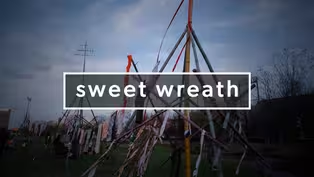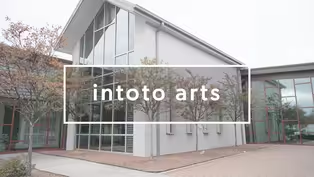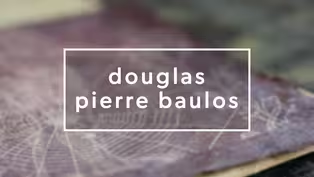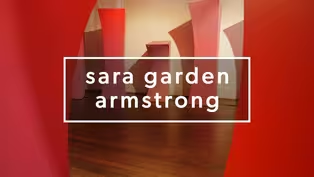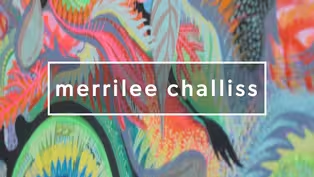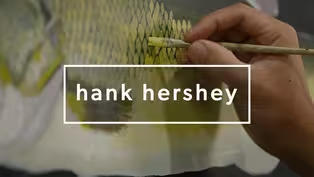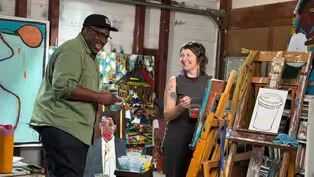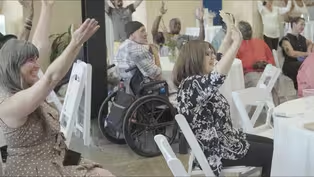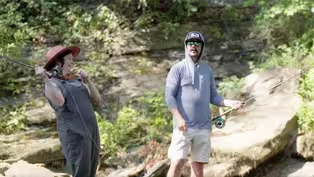Monograph
Hank Hershey
Clip: Season 6 | 7m 5sVideo has Closed Captions
Fisheries biologist and artist, Hank Hershey, of Birmingham, Alabama.
“One of the greatest things about wildlife and fish is that they exist.” Fisheries biologist and artist, Hank Hershey, has devoted his life’s work to wildlife and nature, but specifically fish. He intersects art and science to educate and preserve this beautiful world in which we live and the creatures within it. The opinions stated here do not represent The Army Corps of Engineers.
Problems playing video? | Closed Captioning Feedback
Problems playing video? | Closed Captioning Feedback
Monograph is a local public television program presented by APT
Monograph
Hank Hershey
Clip: Season 6 | 7m 5sVideo has Closed Captions
“One of the greatest things about wildlife and fish is that they exist.” Fisheries biologist and artist, Hank Hershey, has devoted his life’s work to wildlife and nature, but specifically fish. He intersects art and science to educate and preserve this beautiful world in which we live and the creatures within it. The opinions stated here do not represent The Army Corps of Engineers.
Problems playing video? | Closed Captioning Feedback
How to Watch Monograph
Monograph is available to stream on pbs.org and the free PBS App, available on iPhone, Apple TV, Android TV, Android smartphones, Amazon Fire TV, Amazon Fire Tablet, Roku, Samsung Smart TV, and Vizio.
Providing Support for PBS.org
Learn Moreabout PBS online sponsorship(water gurgling) (peaceful music) - Well, a lot of people I think don't know what fish really look like.
People don't really have the appreciation for the diversity and forms and colors and stuff that think most fishermen can appreciate.
You know, fish to most people are just shadows in the water.
Fish are literally my entire life.
My name's Dr. Hank Hershey.
My parents call me Henry.
My fishing buddies call me Hank.
Sometimes it's confusing for people, but it doesn't really matter.
I'm a fisheries biologist by trade and an artist, a creative director.
I wear a lot of hats, but most of my world revolves around fish and fishing.
I think having a really strong sense of place and rootedness is important for anyone.
And so that's what I tried to do when I moved to Alabama.
I was really focused on getting to know the people here, getting to know the places, especially.
Alabama's like no place I've ever been because of the diversity.
I mean, you can be in the Appalachians and Northeast Alabama and then walk down the Piedmont and go over all those cascading falls and the rivers and you're then, you're in the coastal plain, the wiregrass, the black belt, and we've got some beach front property as well.
So, you know, it's just, it's such a joy to be able to see so many wild places that are so different from one another but so close.
I work for the Army Corps of Engineers as a postdoctoral fellow and my job is specifically to understand how fish interact with barriers to migration and rivers.
So usually that's like a dam or something.
A lot of fish require habitat upstream to spawn.
They need to migrate and when there's stuff in the way like dams, you know, that can interfere with their lifecycle and basically, and it can wipe out entire populations.
It also has effects that are not as obvious as wiping out entire populations.
And those effects are the ones that I'm usually working on.
So half of my job is getting native fish past barriers and the other half is making sure that invasive fish don't get past barriers.
But getting fish upstream of dams is like a multi-billion dollar like project in this country.
We're just now starting to see some of the funding for that in Alabama, the Army Corps and the Nature Conservancy recently took on a feasibility study to discuss and plan bypass channels around the dams.
And so those are gonna be just enormous construction projects that divert some water around the dams for fish to basically climb their way upstream.
So it's kind of cool to be on the edge of that and we're just trying to do the best we can to set those projects up for success.
If something eats this, we're gonna have some fun.
Slippery.
I love wind.
The fish can always tell when there's a camera on.
I caught a leaf.
Let's go for a walk.
A little walk.
I'm just glad the water's so cold.
Okay, put one under those trees.
Forward, backward.
Forward, backward, forward.
I just don't know.
Nobody wants to play with me.
That's not gonna catch a fish.
Alright, one more cast.
Caught plenty of leaves.
These sycamores are something else, aren't they?
Well, there's none here, but yeah, there's a good one.
I love sycamores.
People who say it's not about the fishing, never catch fish.
That's okay.
Time to go to Jack's.
Oh yeah.
The first time I decided I wanted to try fly fishing was when I started packing for my first trip to Alaska and my dad was like, "What?
You better bring a fly rod."
And then I just kind of took that rod with me wherever I went in college.
I moved to Auburn in 2017 to start grad school.
I started learning about bass fishing with a fly rod and I was totally hooked.
Fly selection's really important because if they're not eating what you're throwing, it's not because they're not hungry, it's because they don't think your fly looks enough like food to eat it, or they're focused on another food source that your fly does not imitate.
I've met a lot of really talented fly tying artists in the southeast and I've tried to help them out with getting them some business.
And so Hank's Bait Shop kind of turned into a way for me to curate stuff that I knew was good that I knew would work.
I'll do like an assortment of flies every couple months, artists that I admire and then I'll put it all together and sell 'em in batches.
And then I also do some painting.
I just make fish look like the real thing I think, with some flourishes and characterizations.
I try to emphasize some of the more beautiful traits of fish, just to give 'em a little emphasis, I guess.
I'm trying to help catch and release anglers memorialize their fish without, you know, having to kill 'em or pay for a really expensive mount.
(mellow music) And then the third hat that I wear is I'm the Creative Director of Southern Culture "On the Fly Magazine", which is an online magazine and we focus on, you know, regional storytelling.
I kind of describe it as the skateboard magazine for southern fly fishermen.
It's kind of counterculture.
Our readers are sort of brought together by kind of a common disdain for the pretentious.
We focus a lot on DIY, just kind of figuring it out on your own and finding people like you to do it with.
One of the greatest things about wildlife and fish is that they exist.
People sort of talk about conservation in terms of value and in terms of ecological services.
You know, there's some, some animals have direct but human benefits like, you know, fish you can eat and mussels and oysters clean the water, beavers create wetlands that store carbon dioxide and all this stuff.
While I recognize those values, I think it's more important to just recognize the intrinsic value of animals and that every life form really has a right to be here.
The more you understand the linkages between those animals, their requirements for flourishing, the more you can appreciate that worth I think.
I love this rod.
That was him.
Come on, eat it.
Eat it.
The fly fisherman's best friend, 30 mile per hour gusts of wind.
I can't wait to go to Jack's.
Video has Closed Captions
Clip: S6 | 7m 41s | Sweet Wreath is an ongoing artistic experiment being carried out on the edges of Birmingham, AL. (7m 41s)
Video has Closed Captions
Clip: S6 | 5m 50s | InToto Creative Arts highlights the transformative power of creative expression and movement therapy (5m 50s)
Video has Closed Captions
Clip: S6 | 5m 23s | Birmingham-based artist, Douglas Pierre Baulos. (5m 23s)
Video has Closed Captions
Clip: S6 | 5m 19s | Birmingham-based artist, Sara Garden Armstrong, invites us into her layered and multi-faceted world. (5m 19s)
Video has Closed Captions
Clip: S6 | 5m 8s | Merrilee Challiss travels between nature and spirit with her multi-discipline art practice. (5m 8s)
Video has Closed Captions
Clip: S6 | 7m 5s | Fisheries biologist and artist, Hank Hershey, of Birmingham, Alabama. (7m 5s)
Preview: S6 | 30s | Jennifer Wallace Fields visits chef and artist Rosco Hall. (30s)
Clip: S6 Ep4 | 59s | Monograph visits InToto Creative Arts, an experimental art project that focuses healing. (59s)
Preview: S6 Ep2 | 30s | Host Jennifer Wallace Fields learns how to fly fish with fisheries biologist Dr. Hank Hershey. (30s)
Providing Support for PBS.org
Learn Moreabout PBS online sponsorship

- Arts and Music
The Best of the Joy of Painting with Bob Ross
A pop icon, Bob Ross offers soothing words of wisdom as he paints captivating landscapes.












Support for PBS provided by:
Monograph is a local public television program presented by APT
